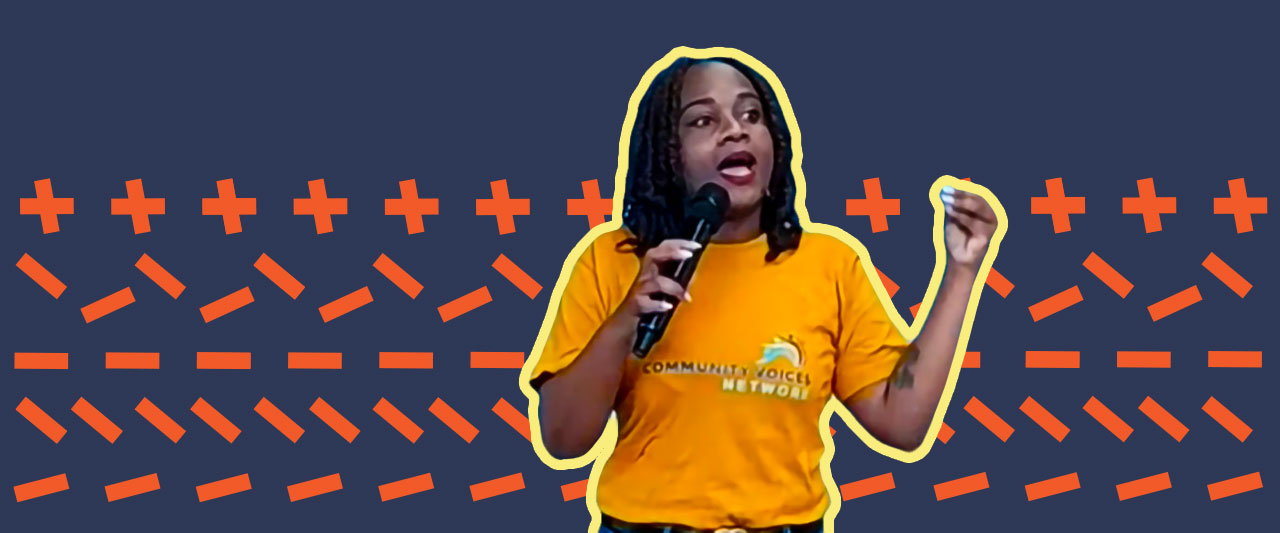Ritah Anindo’s childhood was marked by poverty, crime and violence. Growing up in Korogocho, an informal settlement in the heart of Nairobi, Kenya, meant that the 27-year-old advocate for youth rights witnessed how deeply intertwined these challenges were with child marriage, teen pregnancy and school dropout rates.
“Cases of teenage pregnancies were rampant, including in my own family as my sister was a victim. Dropping out of school was also the norm—out of 20 of my peers, only two of us graduated from high school. Even so, there was no inspiration to complete high school because of poor job prospects and most of my high school friends became pregnant, dropped out and got married early,” she explains.
A witness to child marriage and gender-based violence
Her best friend fell prey to the lure of escaping poverty at only 11 years old and paid a high price. According to Girls Not Brides, 12.5% of Kenyan girls marry or enter a union before age 18 and 2.2% marry before age 15. Poverty coupled with the low social and economic value placed on girls represent a key driver of child marriage in Kenya. Girls also view marriage as an escape from poverty and inequality.
Even those who managed to stay in school were still hounded by male sponsors who preyed on their poverty to demand sex in exchange for school fees payment. Anindo escaped those snares and graduated with a degree in counselling psychology.
A champion for women’s and girls’ rights
“My best friend getting married at that age, at just 11, really challenged me in so many ways because until now, I still remember the incident. Her story and my sister’s made me passionate about supporting young girls and especially access to education and especially young girls, to be independent,” she explains.
This inspired her to start a movement that would counter such challenges. She’s the executive director of Community Voices Network (CVN), a network of young people who’ve grown up in informal settlements and have experienced social and health injustices. She describes her work with the women and girls of Korogocho as her ultimate calling and purpose in life.
The inspiration behind the movement
“I asked myself: What if we change how we look at programs so that people who’ve gone through experiences lead this kind of change? What if we also looked at the power and the innovations of young people? How can I contribute to mobilizing young people?” she poses.
What if we also looked at the power and the innovations of young people?
Anindo has written more than 40 articles for local newspapers, covering abortion rights, health, contraceptive access, HIV and gender-based violence. She’s also led over 50 online campaigns on different health and social justice issues including teenage pregnancies, abortion access to education, gender-based violence and others and contributed to policy documents. She’s keen on inspiring other young people to do the same.
“I thought that maybe if many young people do the same, then that means we could address some of the social and health injustices that we see,” she explains.
‘Sometimes we call ourselves wounded healers’
Community Voices Network (CVN) has three thematic areas: education, health and livelihoods.
“We look at these three issues in terms of how they intersect in the context of poverty. For health, we focus on sexual reproductive health and mental health. We have a network of young people who live in informal settlements. They act as referral pathways and as support systems in the community,” says Anindo.
Nimechanuka, a digital platform supported by Ipas Africa Alliance, is a tool that CVN uses frequently for their work on sexual and reproductive health and rights (SRHR).
“It’s a referral pathway for us at CVN, specifically for access to safe abortion and accurate contraception information. We’ve also collaborated with Nimechanuka for online advocacy issues like teenage pregnancies and contraception and other SRHR issues affecting the youth,” explains Anindo.
While the platform has helped them improve access to quality, accurate information, accessibility of the services remains an issue because of the high poverty levels.
CVN also links young people to education and livelihood opportunities.
“We also support food security, just sharing information on sustainable ways of earning a livelihood,” she explains.
“Sometimes we call ourselves wounded healers because we have all been through these issues. The healing bit comes because we are doing something about it so that no other woman or girl suffers from the things we experienced.”
This is what a day in her life looks like.
Sometimes we call ourselves wounded healers because we have all been through these issues.


